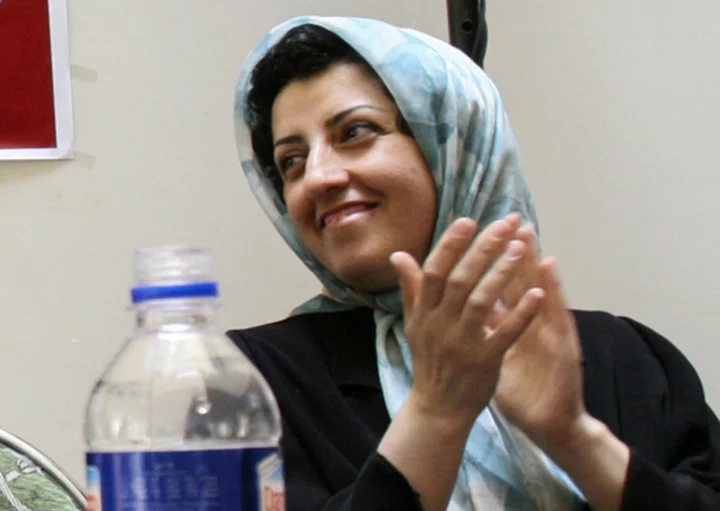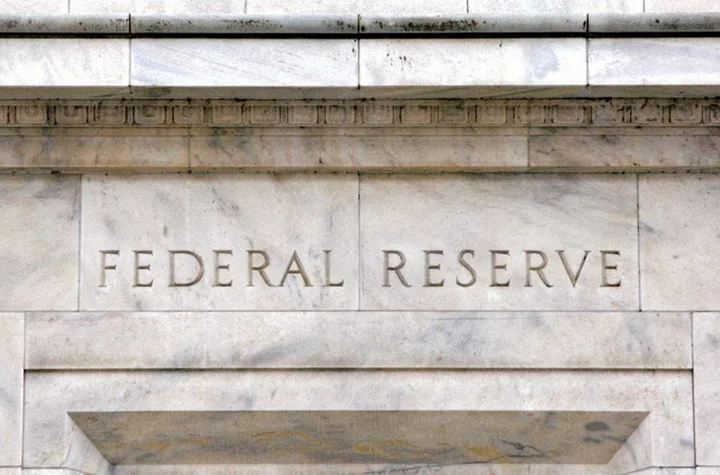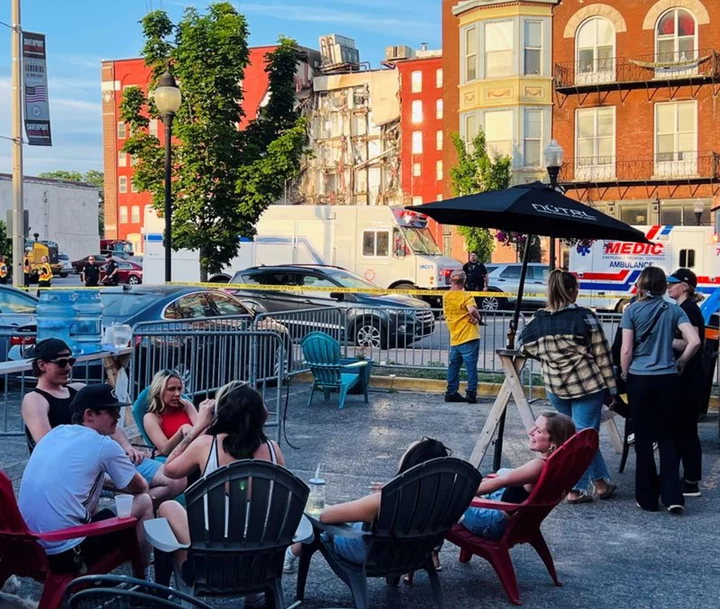UNITED NATIONS (AP) — Iran is cracking down on protesters, unlawfully detaining human rights activists, including new Nobel Peace Prize laureate Narges Mohammadi, and carrying out an “alarming” number of executions, the U.N. independent investigator on human rights in the Islamic Republic said in a report circulated Friday.
The wide-ranging report by Javaid Rehman, covering the period from October 2022 through July, was written before the announcement early Friday that the Nobel Peace Prize had been awarded to Mohammadi, a longtime campaigner for women’s rights even from her current cell in Tehran’s notorious Evin Prison.
Rehman, a Pakistani-born professor of international human rights law at Brunel University in London, singled out Mohammadi among lawyers and human rights defenders imprisoned for their work in the report to the General Assembly.
He was highly critical of the “excessive and lethal use of force” unleashed by Iranian authorities in reaction to nationwide protests following the 2022 death of Mahsa Amini, a 22-year-old member of the Kurdish minority who was arrested for wearing an “improper hijab” or head scarf.
By the end of July, Rehman said, at least 537 people, including 68 children and 48 women, had died for protesting and hundreds more had been injured “while thousands have been reportedly arrested, detained or incarcerated.”
Rehman expressed disappointment that Iran has not carried out an independent and transparent investigation into Amini’s death or the unlawful use of force against protesters.
He recommended that Iran’s supreme leader, Ayatollah Ali Khamenei, and the country's government, judiciary and parliament “accept full responsibility” for Amini’s death and take immediate remedial actions.
The investigator, appointed by the Geneva-based U.N. Human Rights Council, also recommended that Khamenei and Iranian authorities undertake prompt, independent investigations into the killings of protesters and “immediately end all forms of violence, including sexual violence and harassment of girls and women protesters.”
In the aftermath of the protests, Rehman said, Iranian security forces arrested at least 576 civil rights activists ,including teachers and advocates from labor unions and minority groups.
“The arrests and attacks appear to be aimed at punishing and silencing human rights defenders and civil rights activists, in particular in relation to women’s rights and those calling for accountability for the death of Ms. Amini,” he said, adding that human rights lawyers also continue to be imprisoned for their work.
“Human rights defender Narges Mohammadi remains in prison serving a 16-year prison sentence,” Rehman said, singling her out by name.
He added that “innumerable reports” he received “establish that the rights to freedom of opinion and expression and to participate are under serious threat” in Iran.
His report also cited “significant reports” of arrests and threats against journalists for their independent reporting, including on the protests.
As of the end of July, Rehman said, 21 journalists remained jailed, including Niloofar Hamedi and Elaheh Mohammadi, who reported Amini’s death and are accused of “collaborating with the hostile American government,” “colluding against national security” and engaging in propaganda activity against the authorities.
“These charges carry harsh sentences and potentially even the death penalty.” he said.
Rehman also cited “alarming reports of suspected poisonings in girls’ schools across the country.” He expressed concern at the timing of the incidents, which began only a few weeks after the nationwide protests.
Since the first case was reported in Qom Province last Nov. 30, he said, 78 targeted poison attacks have been reported in more than 100 girls’ schools across Iran. More than 13,000 students, the majority of them girls, reportedly received medical treatment, he said. Symptoms included coughing, difficulty breathing, heart palpitations, headaches, nausea, vomiting and numbness in arms and legs.
Many parents reportedly took their daughters out of school for fear of these attacks, Rehman said.
He expressed serious concern that authorities have subjected the schoolgirls, their parents, teachers, journalists and others to harassment and violence — and have intimidated and arrested those calling for accountability and accusing Iranian authorities of complicity or failure to stop the poisonings.
Rehman reported an “alarming increase in the number of executions” in 2022 — at least 582, including 256 for drug-related offenses. As of July 31, he added, 419 people had reportedly been executed this year, including at least 239 for drug-related offenses.
Since the nationwide protests began, at least seven people have been executed for their involvement, Rehman said. The government claimed that six of the defendants confessed to attacking and killing Basij, paramilitary volunteers who are fiercely loyal to the Islamic Republic, or police officers, he said.
Rehman said he is "extremely concerned at reports of confessions extracted through torture and of the death penalty having been implemented after court proceedings that substantially violated the right to fair trial.” He said he views the executions of the seven protesters as a violation of the International Covenant on Civil and Political Rights.









